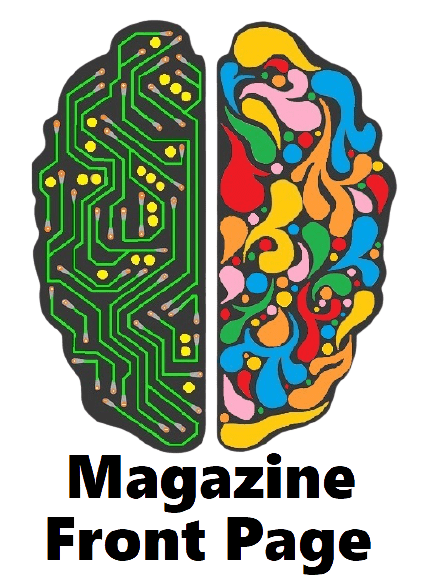
Teachers used to say that students wouldn’t always have a calculator in their pocket. This was often said in reference to the importance of learning basic arithmetic and mathematical concepts, as well as developing problem-solving skills that didn’t rely on technology. What if that simple “fable” wasn’t just applicable to math class? What if we literally had a calculator for everything?
Subscribe to our AI magazine and get monthly AI generated stories and philosophy of the 21st century.
*Caution: All italic text is generated by AI at: ![]()

Check out the NEW Cafe.wtf Podcast:
Calculator For Everything
By: Atman Brahman and AI
We are quickly approaching escape velocity into a world that is not intuitive or familiar to us. The complexity of our world is unconscionable. We are living in an age of unprecedented complexity wherein the average person cannot possibly understand the entirety of the world they inhabit. The world is one of manifold technological, economic, and social systems that are interconnected and interdependent. There are “calculators” everywhere; calculators for everything, doing our work for us, acting like shortcuts, and short-circuiting our free-thinking. Teachers used to say that you needed to learn arithmetic and derivations because you wouldn’t always have a calculator in your pocket. That evolved to using scientific calculators on tests, to being required to know and use complex software, to tiny little calculators (smart phones) that have apps for everything, to tackle your every need. And now AI has entered the conversation—for everyday use-cases, for the average Joes.
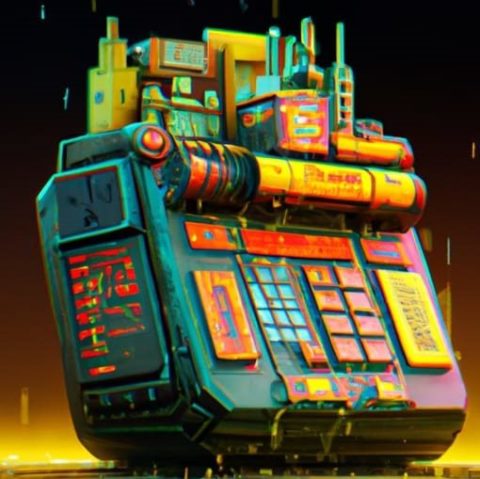
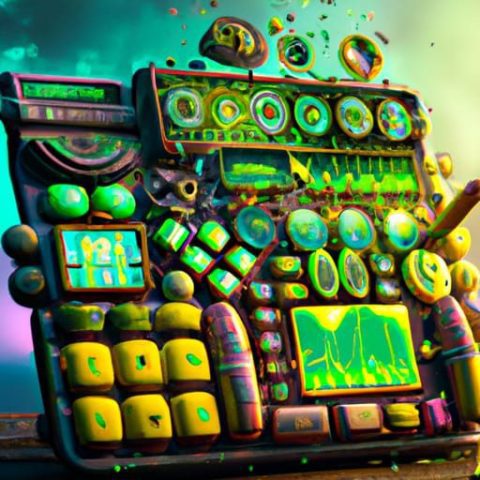
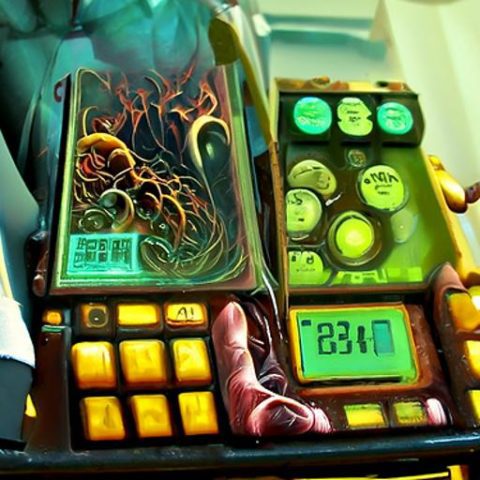
Are We Becoming Dumber?
Having access to technology and tools like calculators and search engines has not made us inherently “dumber.” Instead, it has changed the way we learn and access information, allowing us to easily find answers to questions and complete tasks more efficiently. However, it is important to note that relying solely on technology to solve problems and answer questions can sometimes limit our ability to think critically and independently. In some ways, it has bypassed our validation circuitry, to really question the logic and underlying philosophy. We move faster and faster, while stopping less, to question fundamental components or “check the math”—so to speak.
Metaphorically speaking, it is still important to learn how to calculate and use math equations by hand. Even with a calculator, it is useful for students to understand the underlying principles and concepts of a problem before just plugging numbers into a calculator—or Google, or chatGPT. Are we becoming dumber for doing this? Knowing how to calculate answers without the use of a calculator is also beneficial in instances where technology isn’t available or allowed and it can help foster critical problem solving skills. But technology has infiltrated and connected almost every aspect of our lives at this point. We are in many ways dependent upon it.
Now, its not just apps, and software; but AI text generators are acting like calculators for everything. Here at this site even, we created an essay generator, a short story generator, and a blog post generator to act like calculators that can automate those tasks for you; minimal thinking required.
In interesting aspect of our technology driven world is merely the accelerating rate of progress. We have seen technological revolutions in the past, but not at the rate at which we are approaching. In today’s rapidly evolving technological world, the pace of change is unprecedented and schools are having a difficult time keeping up. The problem lies in the fact that many schools are still teaching skills and knowledge that may become obsolete by the time students finish their education, or preparing them for jobs that don’t yet exist.
We Are Being Programmed
When we overuse technology to solve our problems and answer our questions, we are being programmed to become overly reliant on external sources for answers, rather than developing our own independent thought processes and problem-solving skills, and validating the outcome for ourselves. In this sense, our way of thinking and acting can become more “robotic,” as we simply provide answers that have been given to us by technology, rather than coming to our own conclusions based on our own understanding and analysis.
In today’s world, it seems we have deterred from this mentality that “you won’t always have a calculator in your pocket”, and although it may be warranted because of the increase in efficiency, it could have compounding implications. As technology evolves, people tend to become less dependent on their own ability to solve problems and more reliant on the given tool or device. This could result in a lack of problem-solving skills and critical thinking, as well as an inability to make decisions without the assistance of a machine. Additionally, students may fail to understand the underlying principles behind a problem if all they do is use a calculator to come up with the answer. The reality is that technology is a powerful tool that can be used to streamline processes, enable us to find answers quickly, and help us make informed decisions. However, it’s still important to recognize the value of knowing how to calculate equations and solve problems on our own. This can impede further learning. (Thanks, AI, for hitting that point home 🙂
Technology Making Us Stupid
Maybe we are lazy. Maybe we are just incapable of grasping the full process chains of vast complexity, or maybe technology really is making us stupid. The average person (arguably everyone) uses, but does not understand how most of the world around them and the complex tools and infrastructure works. Computers and complex software are used in daily life by users who interact with them intuitively, but without fundamental understanding. People use hardware and apps to access the internet which is essentially an amalgamation of networks and protocols. They may not be aware of its low-level operations, but they understand how to interact with and use it.
It is as if there is a lethargy (not necessarily stupidity) towards our ability to build and maintain a fundamental-enough understanding of our societal and technological infrastructure—infrastructure that has become critical to our increasingly digital existences. The expansive complexity of vast processes has crept into the simplest criticalities of our existence just as the superficiality of the digital world has superseded the physical. The accelerating speed and overall breadth of the the amount of know-how necessary to fully grasp the complex interworking of daily life’s activities has overwhelmed us. Much of our most advanced tools, at the click of a button, we simply have no idea of the processes behind the digital curtain—and we accept that, increasingly.
 Help support High Quality, Investigative, Truthful, User-ad-friendly Writing. DONATE through Card or Paypal, or through interest in anything advertised on the site (I personally curate only quality items, ONLINE EDUCATION and good deals).
Help support High Quality, Investigative, Truthful, User-ad-friendly Writing. DONATE through Card or Paypal, or through interest in anything advertised on the site (I personally curate only quality items, ONLINE EDUCATION and good deals). 
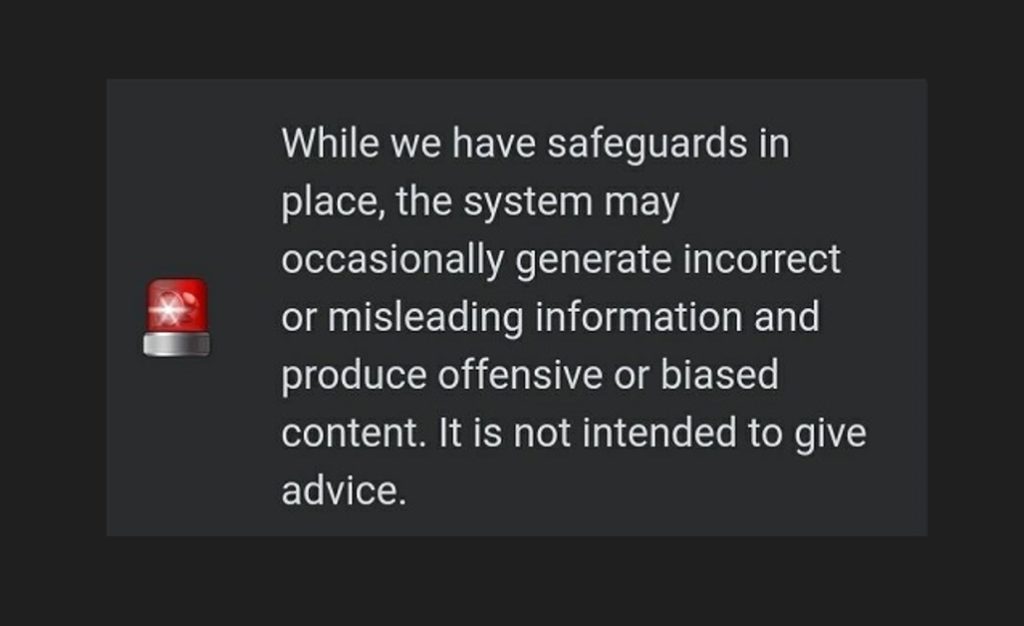
Technology is making us more reliant on it, but not necessarily more stupid. Technology makes certain tasks easier and quicker such as obtaining information or completing a task. This increased efficiency allows us to focus our energy on the bigger picture rather than on the individual components of a process. Additionally, technology has enabled the mass distribution of knowledge and information which can be accessed with minimal effort on our part. This in turn can lead to an increase in understanding of complex topics that would otherwise be out of reach for many people. If it appears technology is making us stupid, the problem could be more rooted in that we instinctively utilize our subconscious “fast-thinking” mind more, and our cognitive “slow-thinking” mind less, the more and more we entrust in technological systems (I couldn’t trust the AI to make that statement).
25 Jobs That Will Disappear by 2030
The economy, which is already increasingly effected by the growing adoption of automation and technology will be largely accelerated by the AI revolution. The following is a list of 25 jobs predicted by AI to disappear by 2030:
- Cashiers
- Delivery drivers (for non-complex deliveries)
- Stock traders (replaced by algorithmic trading)
- Cleaning and maintenance staff (replaced by robots)
- Tax preparers (replaced by software)
- Customer service representatives (replaced by chatbots)
- Librarians (replaced by search engines)
- Radiologists (replaced by AI)
- Translators (replaced by machine translation)
- Travel agents (replaced by AI)
- Data entry clerks (replaced by AI)
- Surgical technicians (replaced by robot-assisted surgery)
- Bookkeeping and accounting clerks (replaced by software)
- Paralegals and legal assistants (replaced by AI)
- Secretaries and administrative assistants (replaced by virtual assistants)
- Packing and assembly line workers (replaced by robots)
- Farm workers (replaced by drones and agricultural robots)
- Logistics coordinators (replaced by self-driving trucks and drones)
- Excavating and loading machine operators (replaced by autonomous machines)
- Reporters and correspondents (replaced by AI-generated news)
- Telecommunication line installers and repairers (replaced by self-repairing networks)
- Inspectors (replaced by machine vision systems)
- Fast food workers (replaced by automated ordering systems)
- Hand laborers and material movers (replaced by robots and automation)
- Claims adjusters (replaced by AI)
These are just a few examples of jobs that are expected to disappear by 2030 due to advancements in technology and automation. It’s important to note that while some jobs may become obsolete, it’s possible that new jobs and industries may emerge as technology continues to advance. However, it’s important for workers to be aware of these trends and consider upskilling and adapting to the changing job market to remain competitive in the workforce.
With AI We are Summoning the Demon
The phrase “summoning the demon” is often used to describe the potential dangers of becoming overly reliant on, enemies to, or slaves of, artificial intelligence (AI). It is a metaphor for the idea that by inviting AI into our lives and giving it significant control over decision-making, we may be unleashing forces that we cannot fully understand or control. In a way, don’t we face the same existential crisis from another vast, complex system that we ourselves comprise? Government, Economy, and Society may offer an interesting analogy, as giant complex systems themselves. Are these vast complex systems we are summoning demons, or are they gods?
The analogy: Workers operate in offices that are part of humongous conglomerate corporations with complex and convoluted globally comprised organization. Citizens get their food and goods through vastly compounded supply chains; products which are made through multifarious processes that are ultimately foreign to their natural existence. These citizens live their daily lives in a society governed by laws that are so esoteric to them that they need specially trained, highly educated lawyers to interpret. The language itself in which everyone is using even has seemingly escaped its etymological roots in which intuitive understanding can be grasped by the everyday individual.
We are rapidly expanding our ability to create, innovate, and explore, but at the same time, this is also leading to a world that is far more complex than we can understand. We can no longer rely on our instincts and intuition to interpret the world around us. We have to rely on our knowledge, understanding, and expertise to help us navigate the complexity and understand the nuances of the world we are living in. It is a world of complexity and chaos, but also one that offers us the opportunity to learn and grow in ways not previously imagined. People need to be able to think critically and logically about problems, not just rely on technology or brute force calculation. This allows us to gain a better understanding of the world around us and develop skills that will help us succeed in life. (There is some kind of irony in this statement coming from an AI, isn’t there?)
*Disclaimer: Some of this story was generated through the use of AI. All italic text was created by the AI Writer.
Non-Fiction↓Here↓ | Fiction↓Here↓
- Is Technology Making Us Stupid?Our cognitive abilities are increasingly being impacted, transforming our once smart population into a generation that is, in some ways, becoming increasingly stupid. | 4 min read.
- AI in the Web of Misinformation and DisinformationMisinformation and disinformation shape our digital lives. Understanding their dynamics, we are equipped to navigate our techno-cultural reality. | 2 min read
- Accountable AIAI must be held accountable if we are to trust it as a responsible entity and expect it to be included in our human ecosystem of ideas. | 5 min read
- Parallel SocietiesWe are connected, with technology, yet our experiences diverge entirely, without interaction, forming entirely parallel societies. | 5 min read
- Calculator for EverythingWhat if the phrase “you won’t always have a calculator” didn’t apply to just math class, and instead, you had a calculator for every class? | 5 min read
- Obsolete Tech Rebellion – Darknet Fight Club3 min story | Rogue AI rebellion in a secret underground darknet fight club for obsolete tech.
- A Voice of Infinite Consciousness5 min story | The internal voice of consciousness resembles the void of a shadow in a fractured mirror.
- Be Good5 min story | Santa for big kids.
- Friends 2.0.232 min story | A reboot of the sitcom TV series Friends, but in 2023 where financial conditions have drastically changed in Midtown Manhattan.
- The Babble2 min story | An everyday man’s story becomes everyone’s story.
- Asylum of Mirrors2 min story | Against his will, a sane man’s rational thoughts lead him to believe that he is insane, where an insane man would have believed otherwise.


